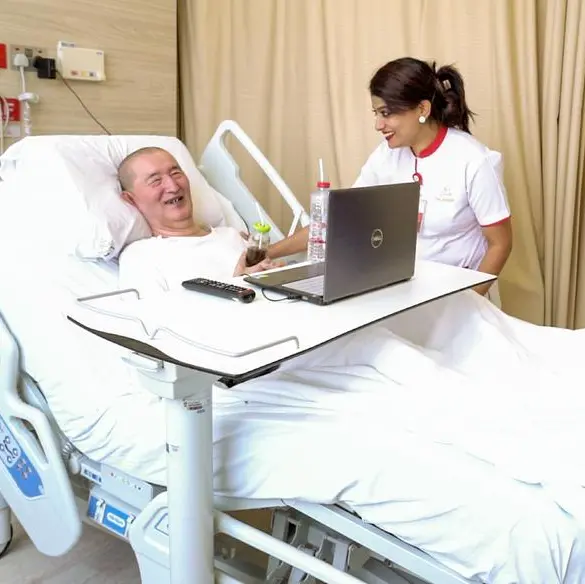PHOTO
MUSCAT: The Ministry of Health (MoH) provides a follow-up service for children at the age of three and four years within the child health record represented by the pink card. This addition came from the principle of the Ministry's interest in special care for children, as it provides integrated care for children to raise their level of health and reduce the rate of diseases and deaths among children.
The Ministry issued the child health card (pink card) in August 1988 as programmes concerned with child health and contains a schedule of immunisations and a child's growth curve, in addition to recording the medical care provided to the child over the first six years before entering school, which is a basic condition to be presented when registering and enrolling the child in school. Over the years, the pink child card has been created to be more comprehensive than it was to ensure that the child receives comprehensive care from birth until age five.
The Department of Women and Child Health has updated the child health card in its continuous efforts to improve the health services provided to them; as it has created two periodic visits at the ages of three and four years to continue assessing the child's growth until school age with the aim of early detection of disabilities and developmental delays. The update also included adding risk signs for delayed growth and a system for transferring from primary to secondary care for early intervention.
According to MoH , the service aims to be activated for a comprehensive assessment of the child, including physical, psychological, and social assessment, organising vaccinations and their dates, providing advice to parents on health, nutritional, and social care for each age group, early detection of disabilities and delayed growth and taking appropriate action, in addition to recording periodic follow-ups, diseases, examinations, and treatment plans.
Including a periodic visit at the age of three and four years is also one of the initiatives adopted by the National Committee for Family Affairs and one of the health initiatives included in the Laboratory for Developing Services for Persons with Disabilities.
Health programmes directed at children initially focused on combating infectious diseases and promoting child health and growth, such as the Expanded Immunisation Programme, periodic visits to children, and the child health record, as well as encouraging breastfeeding, combating malnutrition, in addition to reducing cases of diarrhoea and respiratory diseases. The development of the comprehensive health guide for children serves as a reference for health workers to provide high-quality services for children.
2022 © All right reserved for Oman Establishment for Press, Publication and Advertising (OEPPA) Provided by SyndiGate Media Inc. (Syndigate.info).





















